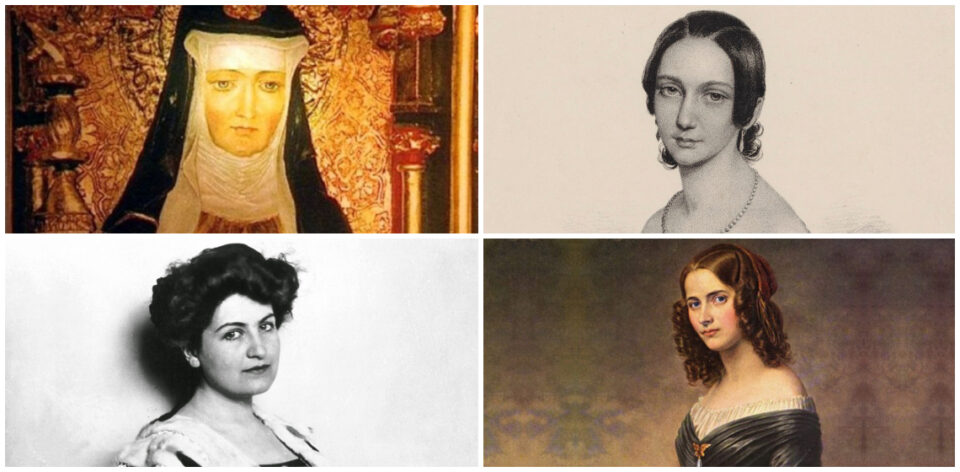Who first comes to mind when you think of the great composers of the olden days? Usually Bach, Mozart, Chopin, Debussy or other famous and male artists. Where are the women in this list?
Due to social conventions, women could not officially be composers or instrumental performers, but loopholes existed. Let’s see the examples of those women who meant the exceptions.
Hildegard von Bingen
Hildegard von Bingen, or St. Hildegard of Bingen (yes, our first woman needed to be a saint in order to compose music) was a great polymath of the 12th century, scientist, writer, abbess, and last but not least, a composer. Even Frederick the First, the Holy Roman Emperor, sought her to ask for her advice. The first surviving oratorio is also attributed to Hildegard, which, like her art in general, is characterized by monophony.
Fanny Mendelssohn Hensel
Jumping into the first half of the 19th century, let’s have a look at Fanny Mendelssohn Hensel’s life. If the Mendelssohn name rings a bell, it isn’t a coincidence as she was Felix Mendelssohn’s sister. Her talent matched that of his brother’s, but her father did not allow her to pursue composing and career in music since such activities were not considered as appropriate for women at that time. However, several works by Fanny were published under Felix’s name, and this is how it happened that Queen Victoria named one of Fanny’s works from a Mendelssohn piano series as her favorite. Felix admitted that it was actually his sister’s work.
Clara Schumann
Clara Schumann (born Clara Wieck) was a 19th-century composer, pianist and wife of Robert Schumann. In contrast to Fanny, she pursued composition professionally, although she achieved great success in a concert career, as the performer of Robert’s works. Not only their life, but their art synchronized, husband and wife mutually used each other’s themes in their own pieces.
Alma Mahler
The last composer discussed in this article is Alma Mahler (born Alma Schindler), who was also a composer’s wife. The defining artist at the turn of the century was her husband, Gustav Mahler. He was so afraid of his wife’s talent that he was only willing to marry her if she signed a contract promising she would not compose. Later, she published her husband’s writings, most of which she falsified, in order to portray a distorted picture of Gustav’s life.
The attitude of “What a talent, what a pity she’s a woman.” seems to be disappearing. Instead, to make up for the huge and long-lasting mistake of the past centuries, special competitions and concerts are now organized only for female contestants and composers.
It is up to you to decide how much this practice reinforces the feeling that the composers of the two genders are still not treated equally or if the separation could be counterproductive. The fact that for centuries male artists composed music and male musicologists wrote about their art, completely excluding women as if we were in Hesse’s Castalia, does not necessarily require overcompensation. Rather, we should acknowledge that female composers exist. Forget the question “how does it feel to be a female composer?” but think about music itself.
Translated by Emese Balog

